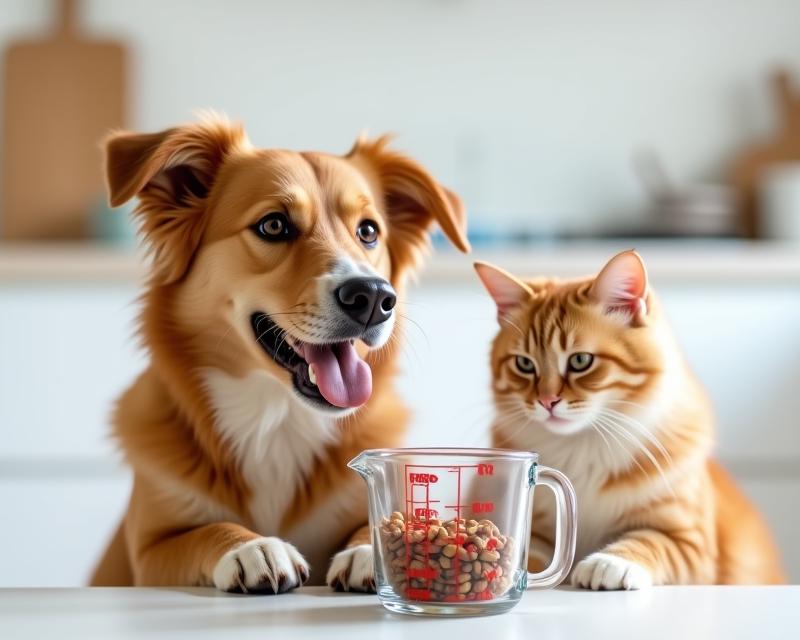Pet Nutrition: Avoiding Overfeeding
Publish in Health el 28/06/2025 23:16
Pet Nutrition: Avoiding Overfeeding
As loving pet owners, we always want the best for our furry, scaled, or feathered companions. A crucial part of that is ensuring they receive proper nutrition. But did you know that even with the best intentions, overfeeding is a common problem that can lead to serious health issues? Let's explore why overfeeding is dangerous and how to keep your pet happy and healthy with balanced meals.

Why is Overfeeding Harmful?
Overfeeding isn't just about a chubby pet; it can have a significant impact on their well-being. For dogs and cats, excess weight puts a strain on joints, increasing the risk of arthritis and mobility problems. It also elevates the risk of diabetes, heart disease, and even certain types of cancer. Smaller pets like rabbits and guinea pigs are particularly susceptible to digestive issues from overeating, which can lead to serious and potentially life-threatening conditions. Essentially, an overfed pet is often an unhealthy pet.
How Much is Enough?
The amount of food your pet needs depends on several factors, including their species, age, breed, activity level, and overall health. Always consult with your veterinarian to determine the appropriate daily food allowance for your individual pet. Pet food packaging provides guidelines, but these are just starting points. Don't rely solely on the guidelines; your vet can tailor a plan to your pet's specific needs. Pay close attention to your pet's body condition. You should be able to easily feel their ribs without pressing hard, and they should have a visible waistline when viewed from above. If you can't easily feel their ribs, they are likely overweight.
Tips to Prevent Overfeeding
- Measure food carefully: Use a measuring cup to ensure accurate portions. Avoid estimating!
- Feed at scheduled times: Establish a regular feeding routine to help regulate your pet's appetite.
- Limit treats: Treats should only make up a small percentage (around 10%) of your pet's daily calorie intake. Choose healthy treat options.
- Avoid table scraps: Human food is often high in fat and calories and can be harmful to pets.
- Monitor weight regularly: Weigh your pet every few weeks to track their progress and adjust their food intake as needed.
Providing your pet with the right amount of food is a simple yet powerful way to contribute to their long-term health and happiness. By being mindful of their nutritional needs and avoiding overfeeding, you can help them live a long, active, and fulfilling life. If you have any concerns about your pet's weight or diet, don't hesitate to reach out to your veterinarian for personalized advice.





